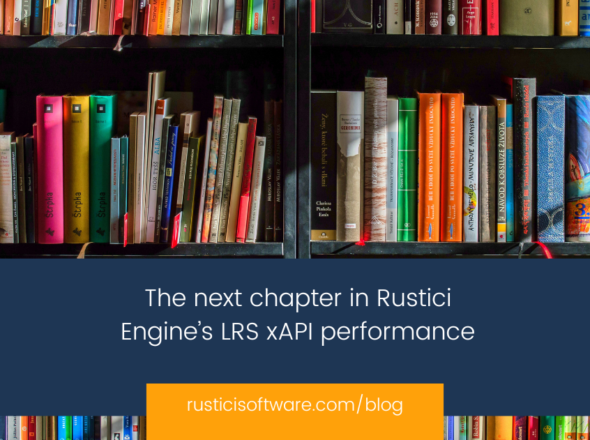A few weeks ago, we released the new version of our website (which has been well received) and upgraded our servers. TestTrack, our freely available testing application, has been growing constantly and was overloading the server on which it lived. The transition went very well, the 404s have been handled (for the most part), and things are functioning as we all wanted.
During the process, TestTrack was down for a period of time, and our phones started ringing. People really depend on TestTrack. We’re glad. We want folks to use it; it helps us get better and it helps further the standard as a whole.
So, for all you who depend on TestTrack, let this be your warning. We’re doing something new with TestTrack again. We’re about to move TestTrack from a traditional SCORM Engine installation to our newest release… something we’re really excited about. We have developed a hosted/cloud based version of the SCORM Engine, the SCORM Cloud.
“What?”
Some of you are reading this thinking, “What in the world is “cloud computing“? Put “simply”, cloud computing lets us provide the SCORM Engine functionality as a service. Rather than having to install the SCORM Engine for each of our customers on their servers, anyone who wishes to integrate against the SCORM Engine may do so against an existing installation in Amazon’s Web-service Architecture.
Is this a big deal?
No. If you’re a TestTrack user, and all you care about is TestTrack’s ability to import and launch your content, this really isn’t a big deal. It does allow us to scale TestTrack more effectively (because we can increase storage dynamically and add EC2 instances as need), but it shouldn’t dramatically impact your experience.
And yes! I am personally very excited about things that could come out of the Hosted SCORM Engine. I’m excited about what we can do with it, and I’m excited about what others can do with it. Anyone who aspires to “mash-ups for eLearning” and cares about SCORM may now have the tool that really lets them make a difference.
The first thing we’re doing with the SCORM Cloud, as mentioned above, is releasing TestTrack against it. That means that the core part of the TestTrack application will continue to function as it does today (a .NET application hosted on our own servers), but that the content delivery and tracking and import will all be handled by the SCORM Cloud. Consider this your proof of concept (and our beta). From there, some of the things we have in mind include (ideas only, no promises):
- Automatic SCORM Version upgrades
- Alternative pricing structures for the SCORM Engine (with lower up-front costs)
- Hosting for content vendors who want to track the use of their content
- Anything that reduces the “silo-ed” nature of the learning industry today
And more than anything, we’re hoping you, the community, will create awesome products around the SCORM Cloud. What could you do?
- Deliver content from any application?
- A Facebook application?
- A Google Calendar based LMS?
- Limit the server/bandwidth requirements on your LMS by offloading them?
- Anything. Come up with better ideas than we have!
Shoot us a message. We’d love to talk through the possibilities with you. We’re pretty excited about the unlimited possibilities this creates, and we’re nearly ready to share the APIs and documentation that will allow you to build around the SCORM Cloud.


